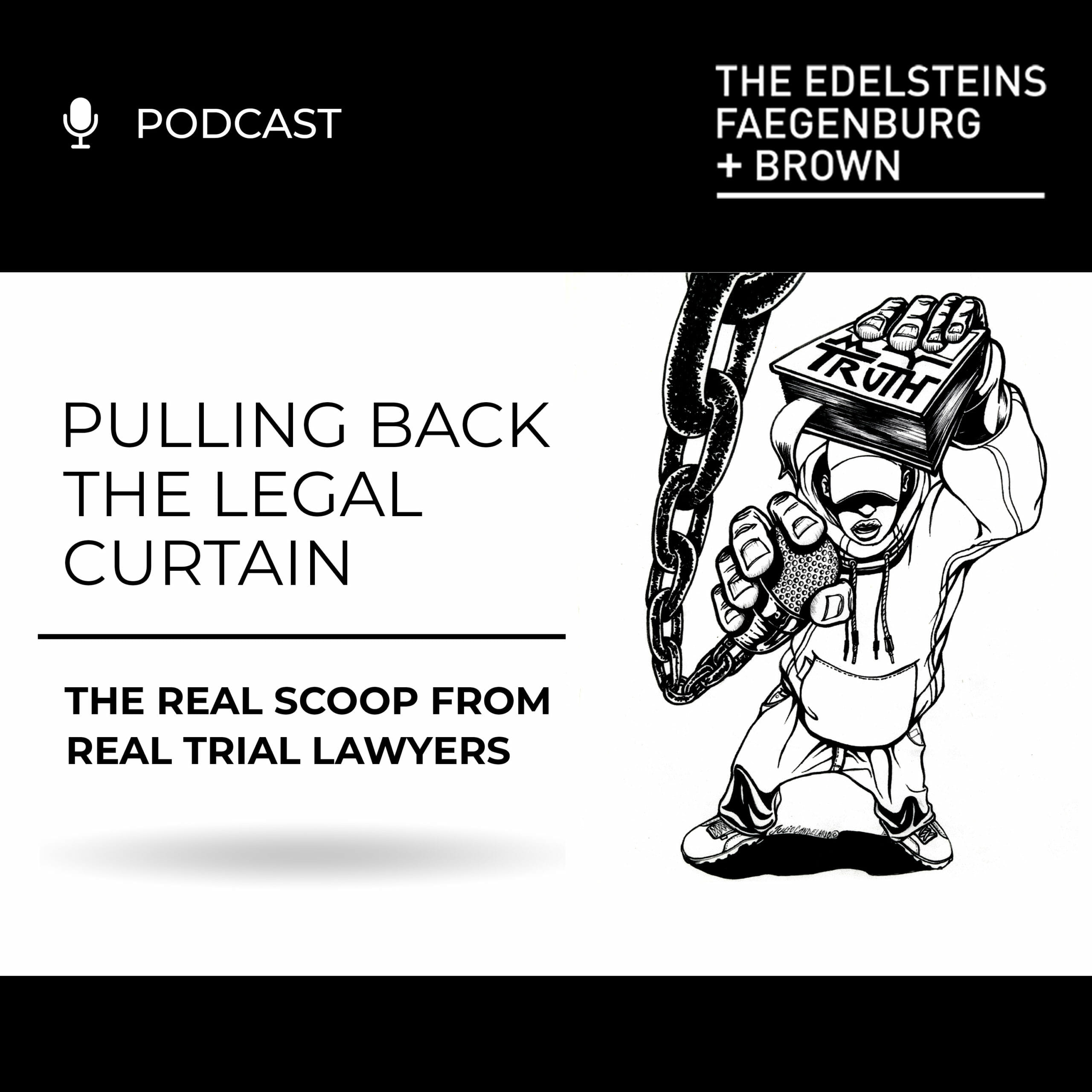Ever wonder what really goes on during trials in New York City? Join Paul and Adam Edelstein, two seasoned trial attorneys from The Edelsteins, Faegenburg and Brown, for lively conversations with former judges, experts, doctors, and other trial professionals who have the real scoop on New York City’s sometimes tumultuous and always intriguing trial scene.
PODCAST TRANSCRIPT:
This is going to be a very interesting podcast for me. Here we have my partner and brother Adam Edelstein joining me for the very first time. Usually he refuses to join me, so this is a really good day. Adam and I have been practicing together for a long time, but Adam has been a matrimonial family law attorney since ’92. I practice primarily in the personal injury medical malpractice world so we really do two different things, but both of them involve the same thought process and analysis. I thought it would be a good idea, following the midterm elections of this week, to talk about current events, particular elections, election law, and all of these things that we see going on at the time to ask Adam his opinions.
What is “Legal Process”?
The legal process was a philosophy class in law school and the main point was; here’s how law making and policy should be analyzed under this foundational principle of the United States, which is all about your freedom and your rights. This professor at law school, his name was Bailey Cooplin by the way, taught us the concept of analyzing what is just versus what is fair. Here’s the analysis, everything in our country is about your rights, but we have to balance the right of the individual versus the right of the greater good, the electorate, the larger community.
The perfect examples of the conflicts that you see every day is that there are countries founded on the principle of leave me alone, I have individual rights, liberty, and all freedom of thought, but the country was also founded on the principle that there’s a common good that we have to work towards, which may at times stomp on the individual’s rights. Remember the social contract in fifth grade? You’re making a contract with your government, you’re giving up some of your individual rights for the sake of the greater good by allowing the government to govern. So again, then you brought up conflict resolution, I think, which is well, who’s right in any of these conflicts?
What is the difference between what is just and what is fair?
For example, last night my kids and I know my kids, there was some fighting going on and there was some deprivation of social media time on their phones and the immediate response I got from my son when I turned off his phone was, “It’s not fair. “
I’ll turn it into what I’m saying is there’s a social contract in your home and that is similar to the social contract that citizens have with their government that, “I’m giving up my individual right to drive 95 miles an hour for the rights of the greater good and regulating the speed so that people don’t get killed.”
In your home, you have a contract. There are behaviors that have to be adhered to and when there is something done inappropriately, the punishment and the giving up your right to say, “I have social media 24/7 unconditionally.”
Remember, maybe your son has some wacky but theoretically fair … not fair argument, but an argument, “Dad, this should not be something that warrants taking away my right to play on the internet alone.” Your position is, “No, we are setting an example for the whole family that in this situation you have to behave as follows for the good of the family, for all of our goods.”
Another example is guns. We have a right to a gun. But what about the greater goods’ safety rights and the conflict resolution becomes, “Should we regulate, take away that sacred visual right for the right of the greater good?”
What’s fair versus what’s just? No one’s wrong in that analysis. If you want to get into something that’s a little bit different, we were going to talk about election laws, but you’re right, we bring the subjective view to things and I want to tell people that I constantly remind myself to speak, preach, analyze, and always remember the rose glasses that everyone has and brings to the table and that’s subjectivity. Why is that important? Because to resolve conflict in democracies and courtrooms, you do have to put yourself in the shoes of the other side.
You have to always remind folks that you’re trying to not color it and just trying to make people think. That’s what I’ve learned to love.
What is a reactionary law process to election fraud?
Law making in general and governmental policy and law making is, in general, reactive to an immediate problem. Pandemic, change the laws. 9/11, no more shoes on planes. Now, that’s a law making process that could work, but there’s another way to make policy to change law and that’s to be forward thinking and to think about based on history, which repeats itself, on the horizon’s going to be a problem that the government has to handle. Then you don’t react, you’re ready, you’re proactive. Great example, the pandemic. Best example, global warming. Even if you don’t believe in it, imagine if the red flag of global warming was raised 100 years ago and progress was made. That would’ve required strategic thinking.
But with the pandemic is a fabulous example, our process, and it happens in the lawmaking process as well, because there is a greater good to look after and that requires long term planning politically and not reaction. When you react as a lawmaker or even as a lawyer you’re doing it with colored glasses because you’re thinking, “I need to give them something immediately to make them feel safe”, whether that would be full regulation on TSA and airlines within weeks of the incident or something else.
Let’s talk about the U.S. election system and the law making process, it’s the same thing. Brazil, Western Europe, United States. In Brazil, they have a uniform election law throughout the country and Brazil has 3O states. They have one law, everyone has to do it the same. In the United States, we have election laws, much of which was made reactively because of the last election without real thought and process. In the United States we have hundreds of conflicting election laws from the state level to the sheriff at the local. The point is their systems work, they have never had real mass voter fraud and this is a result of planning, it doesn’t happen overnight.
We’re reacting again and generally in history, reactive law making, reactive policy making in the near term generally statistically doesn’t work. As historians and lawyers, we know to learn from history, it repeats itself. There’s patterns we can inevitably see. “Oh, we’re going to have on the horizon certain economic disadvantages if we don’t address long term issues like energy,” or things … You don’t have to have a position on these things. All I want people to do is think about it, that’s all. When we start thinking about it, even if two people disagree, the dialogue and the process should result in reasonable laws and policies balancing the rights of the individual and the greater good.
Conclusion:
That’s why I think it’s really important to have advocates like you and like me be in there at both the micro, the court level, and macro, the legislative level. Oftentimes they’d be called lobbyists at that point, but to present to these people to say, “Here are both sides of the coin,” and it really does trace back to what you learned in law school. In balancing what is just for the individual versus what is fair in terms of a greater good and the law really is a balancing act on both
You can find The Edelsteins Faegenburg & Brown Law firm on LinkedIn.

